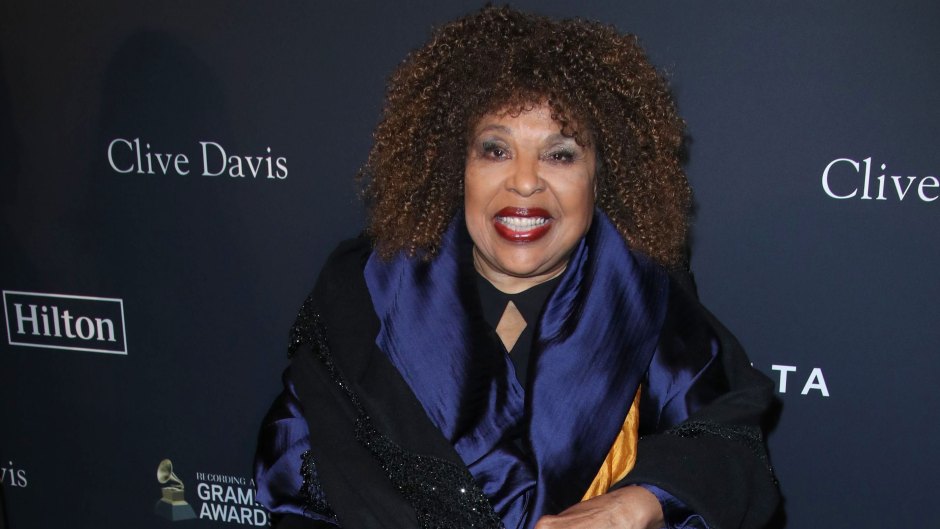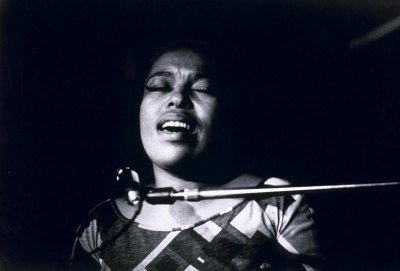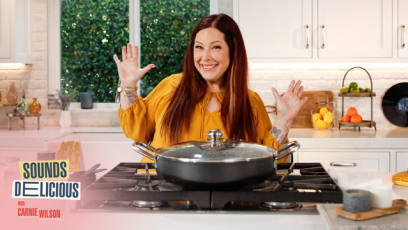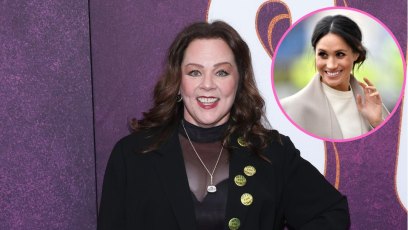
Matt Baron/Shutterstock
Roberta Flack Reveals Life Lesson She’s Learned After Her 5-Decade Long Career: ‘Music Is Everything’
She’s been soothing our souls with her warm, velvety voice for more than five decades, and at 83 Roberta Flack has no plans to stop the music. The only solo artist to win two consecutive Record of the Year Grammys (for “The First Time Ever I Saw Your Face” in 1973 and “Killing Me Softly With His Song” in 1974), she just earned a 2020 Lifetime Achievement Award from the group.
And though a stroke led her to stop touring in 2018, she’s been keeping busy with several new projects, including an upcoming stage musical and the just released deluxe reissue of her 1969 debut, First Take. What’s the secret to her long-lasting career? “I arrange my songs — both musically and thought-by-thought — to tell stories that move people to love and learn about who they are at their deepest levels,” Roberta exclusively tells Closer. “‘The First Time…’ is timeless because seeing a person we love for the first time is an experience that always has been, and always will be.”
Keep scrolling for Closer‘s exclusive Q&A interview with Roberta Flack!

You just released the 50th anniversary edition of First Take. Why is it special?
I’m taken back to my days performing at [the Washington, D.C., bar] Mr. Henry’s, especially in songs on the bonus CD that haven’t been released before. I remember the
intimacy I had with audiences, how I tried to entertain and interest them, but mainly touch their hearts. It was a time of discovery and transition for me.
You were a public school music teacher when you played there. What was the big break that led to your recording contract?
As word spread about me in the D.C. area, [owner] Henry Jaffe added a room for me and my trio called Mr. Jaffe’s Upstairs. The sign is still there: “Roberta Flack Trio — Tuesday through Saturday.” Five nights a week, three shows a night and every set was different — that’s a lot of music. I came to the attention of [jazz pianist] Les McCann, who arranged an audition with Atlantic Records. I was asked how many songs I knew, and I said, “600!” That started my 40-plus-year relationship with Atlantic.
Your 1969 LP featured “The First Time…” but the album and song didn’t hit No. 1 until Clint Eastwood put it in his 1971 film Play Misty for Me. How did that happen?
Among his many talents, Clint Eastwood has always been a musical visionary. He told me he heard my version of [the 1957 folk song] while he was driving down an LA freeway and had to stop his car. He called me and said, “I’d like to use your song in this movie about a disc jockey. [I’ll] use it in the only part of the movie where there’s absolute love.” I was floored!

Did you rerecord it for the film?
I said, “I want to do it over. It’s too slow.” He said, “No, it’s not.” That’s the version of the song you know. It gives you a snapshot of his ability to see beauty in simplicity and use music to convey emotion.
What and who inspires you?
I’m influenced by all musicians: Bach, Mozart, Scarlatti. I grew up listening to Mahalia Jackson, Rosetta Tharpe. I adore Kathleen Battle. Mongo Santamaría, Leonard Cohen, Miles Davis and Joni Mitchell influence me. It’s their courage to honestly express [things] that inspires me.
You’re classically trained. Was there a moment that set you on your path?
My parents told me I was playing piano at our church’s Sunday school. A member heard me, decided that I deserved lessons and offered to sponsor me. As my parents couldn’t afford them, this was a turning point. I became a student of one of the best teachers in the D.C. area, Alma Blackmon. These lessons were transformative and opened up an entire new world of music.

What influence did your parents have on you as you were growing up?
My sisters and I grew up poor, but not impoverished. We always had enough to eat and a roof over our heads. My mother played piano for our church services, and my father brought home an upright piano from a junkyard for me. It smelled and was ugly, but he cleaned it up and painted it green. I played the heck out of it! They encouraged my musical abilities and found ways for me to learn and grow.
You were accepted to Howard University at age 15. How did you manage that?
I skipped several grades. I was very shy, but [got] a full scholarship to study music. I’d wanted to major in classical piano, but changed to music education at the suggestion of a dean. It seemed more practical, with such limited job opportunities for black women then.
Was it difficult at such a young age?
I made friends with six girls — we were “The Motley Crew.” They helped me to feel included, even though I was three years younger. We had meals, lived together in the dorms and remain friends to this day.

What did you learn from your 1965–’72 marriage to musician Steve Novosel, and was your interracial relationship tough?
[I learned] that love is love, and no one has the right to judge it. Steve and I remain fast friends to this day. Our love endures, although its form has changed.
How’ve you been since your 2016 stroke?
I’m thankfully in good health. My stroke, like this pandemic, causes me to slow down. I’m no longer racing around the world, so I have time to listen, watch, act and create. More than anything, it gives me gratitude for friends, family and fans that continue to support and love me.
You have a bunch of projects coming up.
I’m working on a children’s book about that junkyard piano I had, and an autobiography. Debbie Allen and I are old and good friends — she’s a sorority sister — and we’ve talked about doing a musical that tells the stories of my music and my collaboration with Donny Hathaway. Filmmaker Antonino D’Ambrosio asked if he could make a documentary about my life. He’s so talented! I accepted, of course.
What is your biggest life lesson?
Music is everything. It’s the language of emotion, expression and connection. No matter what challenge life presents, I’m at home with my piano, on a stage, with my band, in the studio. I can find my way when I hear music. In this time when we are presented with so many things that are dividing us as a nation, finding what connects us is ever more important, as our strength is with our love, not our fear.
— Reporting by Diana Cooper





































